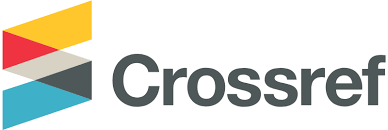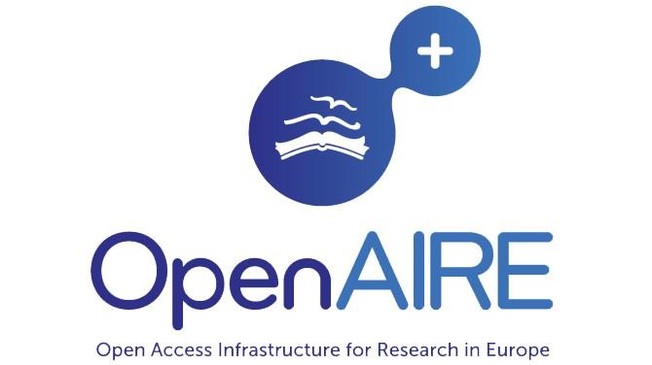PENGEMBANGAN GAME EDUKASI MENGGUNAKAN GENIALLY PADA MATERI HUKUM NEWTON
DOI:
https://doi.org/10.21009/03.1102.PF38Abstract
Abstrak
Pendidikan abad ke-21 menuntut seseorang untuk memiliki keterampilan. Salah satu keterampilan yang harus dimiliki siswa yaitu kolaborasi. Selain itu, memasuki era globalisasi yang terus berkembang mengharuskan adanya inovasi dalam bidang pendidikan khususnya pada pelajaran fisika. Salah satu inovasi dalam bidang pendidikan yaitu game edukasi. Penelitian ini bertujuan untuk mengembangkan game edukasi pada materi hukum Newton. Pengembangan ini dilakukan dengan metode Research and Development (R&D) pendekatan ADDIE (Analysis, Design, Development, Implementation, Evaluation). Game edukasi yang dikembangkan berbantuan website Genially karena Genially menyediakan berbagai templates untuk membuat berbagai jenis game. Hasil dari penelitian ini adalah game dengan fitur-fitur sebagai berikut: petunjuk penggunaan game, peta misi, dan ruang-ruang misi. Setiap ruangan memiliki teka-teki nya masing-masing dimana teka-teki yang disediakan berupa persoalan fisika. Jawaban dari persoalan fisika terkait hukum Newton tersebut digunakan sebagai petunjuk untuk keluar dari tiap ruangan misi. Game edukasi diimplementasikan sebagai media evaluasi pembelajaran fisika dan menjadi inovasi untuk melatih keterampilan kolaborasi siswa karena teka-teki yang disediakan dikerjakan secara kolaborasi.
Kata-kata kunci: Game Edukasi, Hukum Newton, Genially
Abstract
21st-century education requires a person to have skills. One of the skills that students must have is collaboration. In addition, entering the era of globalization that continues to develop requires innovation in the field of education, especially in physics lessons. One of the innovations in the field of education is educational games. This study aims to develop educational games on Newton's legal material. This development is carried out using the Research and Development (R&D) method of the ADDIE approach (Analysis, Design, Development, Implementation, Evaluation). The educational game development is assisted by the Genially website because Genially provides various templates to create various types of games. The result of this research is a game with the following features: instructions for using the game, mission maps, and mission spaces. Each room has its own puzzles and the puzzles provided are physics problems. The answer to the physics problem related to Newton's law was used as a clue to get out of each mission room. Educational games are implemented as a medium for evaluating physics learning and become an innovation to train students' collaboration skills because the puzzles provided are done collaboratively.
Keywords: Educational Game, Newton's Law, Genially
References
[2] Z. Hidayatullah, I. Wilujeng, N. Nurhasanah, T. G. Gusemanto, M. Makhrus, “Synthesis of the 21st Century Skills (4C) Based Physics Education Research In Indonesia,” JIPF (Jurnal Ilmu Pendidikan Fisika), vol. 6, no. 1, p. 88, Jan. 2021, doi: 10.26737/jipf.v6i1.1889.
[3] R. M. S. M. P. Andri, “Peran dan Fungsi Teknologi Dalam Peningkatan Kualitas Pembelajaran,” Jurnal Ilmiah Research Sains, vol. 3, no. 1, Feb. 2017.
[4] D. Kusumaningrum, “Adiksi Game Online: Dampak dan Pencegahannya,” Jurnal Medika Hutama, vol. 2, no. 4, Jul. 2021.
[5] U. Bakan, U. Bakan, “Game-Based Learning Studies in Education Journals: A Systematic Review of Recent Trends,” Actualidades Pedagógicas, no. 72, pp. 119-145, Jul. 2018, doi: 10.19052/ap.5245.
[6] A. Ramesh, G. Sadashiv, “Essentials of Gamification in Education: A Game-Based Learning,” Research into Design for a Connected World: Proceedings of ICoRD, vol. 2, pp. 975-988, 2019 doi: 10.1007/978-981-13-5977-4_81.
[7] S. Subhash, E. A. Cudney, “Gamified learning in higher education: A systematic review of the literature,” Computers in Human Behavior, vol. 87, pp. 192-206, Oct. 2018, doi: 10.1016/j.chb.2018.05.028.
[8] R. Kurniawan, D. A. Yuntiaji, D. A. Safitri, H. S. Lukman, “Gamifikasi Kemampuan Pemecahan Masalah Matematis: Apa, Mengapa, Dan Bagaimana,” Mathline : Jurnal Matematika dan Pendidikan Matematika, vol. 6, no. 1, pp. 55-69, Mar. 2021, doi: 10.31943/mathline.v6i1.200.
[9] R. Pan, H. Lo, C. Neustaedter, “Collaboration, awareness, and communication in real-life escape rooms,” in DIS 2017 - Proceedings of the 2017 ACM Conference on Designing Interactive Systems, pp. 1353-1364, Jun. 2017, doi: 10.1145/3064663.3064767.
[10] J. Dugnol-Menéndez, E. Jiménez-Arberas, M. L. Ruiz-Fernández, D. Fernández-Valera, A. Mok, J. Merayo-Lloves, “A collaborative escape room as gamification strategy to increase learning motivation and develop curricular skills of occupational therapy students,” BMC Medical Education, vol. 21, no. 1, p. 1-13, 2021, doi: 10.1186/s12909-021-02973-5.
[11] G. R. Vargas, “The Promotion of Online Student-Centered Classes to Achieve Communicative Language Teaching with the Help Offered by Technological Tools,” English language teaching in Costa Rica: Reflections on emergent challenges, pp. 13-21, 2021.
[12] A. Lingga Ratna Sari, A. Taufiq, “Pemahaman Konsep dan Kesulitan Siswa SMA pada Materi Hukum Newton.” Jurnal Pendidikan: Teori, Penelitian, dan Pengembangan, vol. 3, no. 10, pp. 1323-1330, 2018, [Online], Available: http://journal.um.ac.id/index.php/jptpp/.
[13] M. R. Fadlli, “Analisis Kesulitan Siswa dalam Menyelesaikan Soal Hukum Newton,” Jurnal Pendidikan: Teori, Penelitian, dan Pengembangan, vol. 4, no. 8, pp. 993-997, 2019, [Online], Available: http://journal.um.ac.id/index.php/jptpp/
[14] D. Januarifin, P. Parno, A. Hidayat, “Kesalahan siswa SMA dalam memecahkan masalah pada materi Hukum Newton,” Momentum: Physics Education Journal, 2018, doi: 10.21067/mpej.v1i1.2292.
[15] S. Supeno, S. Subiki, L. W. Rohma, “Students’ Ability In Solving Physics Problems on Newtons’ Law of Motion,” Jurnal Ilmiah Pendidikan Fisika Al-Biruni, vol. 7, no. 1, pp. 59-70, 2018, doi: 10.24042/jipfalbiruni.v7i1.2247.
[16] R. M. Branch, “Instructional Design: The ADDIE Approach. Boston,” MA: Springer US, 2009. doi: 10.1007/978-0-387-09506-6.
[17] R. Pan, H. Lo, C. Neustaedter, “Collaboration, Awareness, and Communication in Real-Life Escape Rooms,” in Proceedings of the 2017 Conference on Designing Interactive Systems, pp. 1353-1364, 2017, doi: 10.1145/3064663.3064767.
[18] A. I. V. Vörös, Z. Sárközi, “Physics escape room as an educational tool,” AIP Conference Proceedings, vol. 1916, no. 1, p. 050002, 2017, doi: 10.1063/1.5017455.
[19] S. Lopez-Pernas, A. Gordillo, E. Barra, J. Quemada, “Examining the Use of an Educational Escape Room for Teaching Programming in a Higher Education Setting,” IEEE Access, vol. 7, pp. 31723-31737, 2019, doi: 10.1109/ACCESS.2019.2902976.
[20] J. Guckian, L. Eveson, H. May, “The great escape? The rise of the escape room in medical education,” Future Healthcare Journal, vol. 7, no. 2, pp. 112-115, 2020, doi: 10.7861/fhj.2020-0032.
[21] M. J. Vergne, J. D. Simmons, R. S. Bowen, “Escape the Lab: An Interactive Escape-Room Game as a Laboratory Experiment,” Journal of Chemical Education, vol. 96, no. 5, pp. 985-991, May 2019, doi: 10.1021/acs.jchemed.8b01023.
[22] Y. H. Lien, C. P. Wang, S. M. Wang, C. T. Li, H. T. Hou, “Designing an Escape Room Educational Game and a Game-based Learning Activity for Science Learning: Analysis of Learning Achievement and Flow State,” in 2019 8th International Congress on Advanced Applied Informatics (IIAI-AAI), pp. 1049-1050, Jul. 2019, doi: 10.1109/IIAI-AAI.2019.00221.
[23] C.-T. Li et al., “Designing an Escape Room Educational Game for Cardiopulmonary Resuscitation Training: The Evaluation of Learning Achievement and Flow State,” in 2020 9th International Congress on Advanced Applied Informatics (IIAI-AAI), pp. 816-817, 2020, doi: 10.1109/IIAI-AAI50415.2020.00165.




